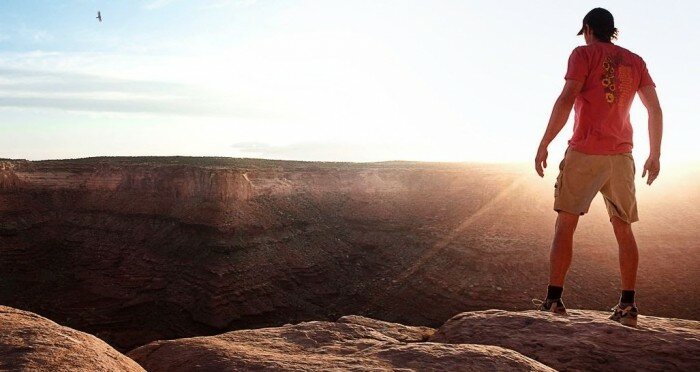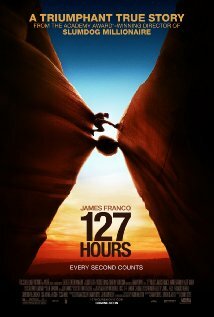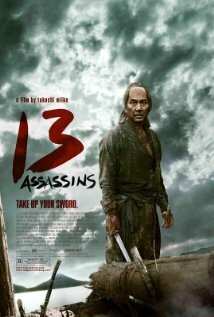Unless you’ve been stuck beneath a rock for the last couple of weeks (pun intended), chances are you would have heard or read critics and audiences alike raving about the incredible performance given by James Franco in 127 Hours, Danny Boyle’s follow up to the Academy Award winning Slumdog Millionaire. And those raves are right on the mark.
Adapted from Aron Ralston’s autobiography Between a Rock and a Hard Place, Boyle’127 Hours adapts Aron’s incredible true story of courage, sacrifice and survival to the big screen. In April 2003 whilst hiking in Utah, a boulder falls on Aron’s (Franco’s) arm, trapping him inside an isolated crevice of a canyon. Over the next five days – or 127 hours – as he struggles to remain alive, Aron looks back over his life and re-examines his mistakes, eventually finding the courage and willpower to — spoiler alert! — amputate his own arm in order to survive.
The film opens on an adrenaline high that never lets up, even when you think it should. You can thank James Franco for that, who after playing everything from stoner dudes (Pineapple Express) to gay lovers (Milk), delivers an inspirational, career-best performance as Aron. Drawing comparisons to Tom Hanks’ performance in Cast Away (where he acted opposite a volleyball), Franco makes you feel as though you are right there with him, from his anger, frustration and despair to the moment he finally moves free. One scene in particular comes to mind where Aron, either out of boredom or in a desperate bid to stay sane, interviews himself as if he were on a TV talk show. Here, Franco manages to be funny, charismatic and charming, yet there is also a deep sense of poignancy to his delivery. It comes as no surprise that Franco’s performance has received an Oscar nomination, and although the competition is stiff (Colin Firth and Jeff Bridges are no pushovers), he’s in with a genuine chance.
Whilst 127 Hours is all about Franco, writer/director Danny Boyle’s handling of Ralston’s story is also spot on. Instead of padding the script with fictional events to make it more “audience friendly” (as so many Hollywood biopics do), Boyle uses flashback scenes of Aron’s past and actual hallucinations that he experienced to help break the narrative up. These scenes featuring fine support from Kate Mara (Brokeback Mountain), Amber Tamblyn (Sisterhood of the Travelling Pants) and Clémence Poésy (In Bruges) are enjoyable and provide a perfect balance with Franco’s more dramatic scenes inside the canyon. The most buzzed about scene, the amputation, is handled with dignity; Boyle never using it to exploit his audience.
Everything about 127 Hours is of distinction, from Franco’s inspirational performance, Enrique Chediak and Anthony Dod Mantle’s inventive cinematography to A.R. Rahman’s uplifting, spine-tingling score that makes you feel as though a weight is being lifted from your shoulders.
—
Note: This is a second take review of 127 Hours. Read Anders Wotzke’s initial review here.






![Howl [2010] (Review) Howl [2010] (Review)](/wp-content/uploads/howl_movie_image_james_franco_03-e1301532628642-150x150.jpg)









